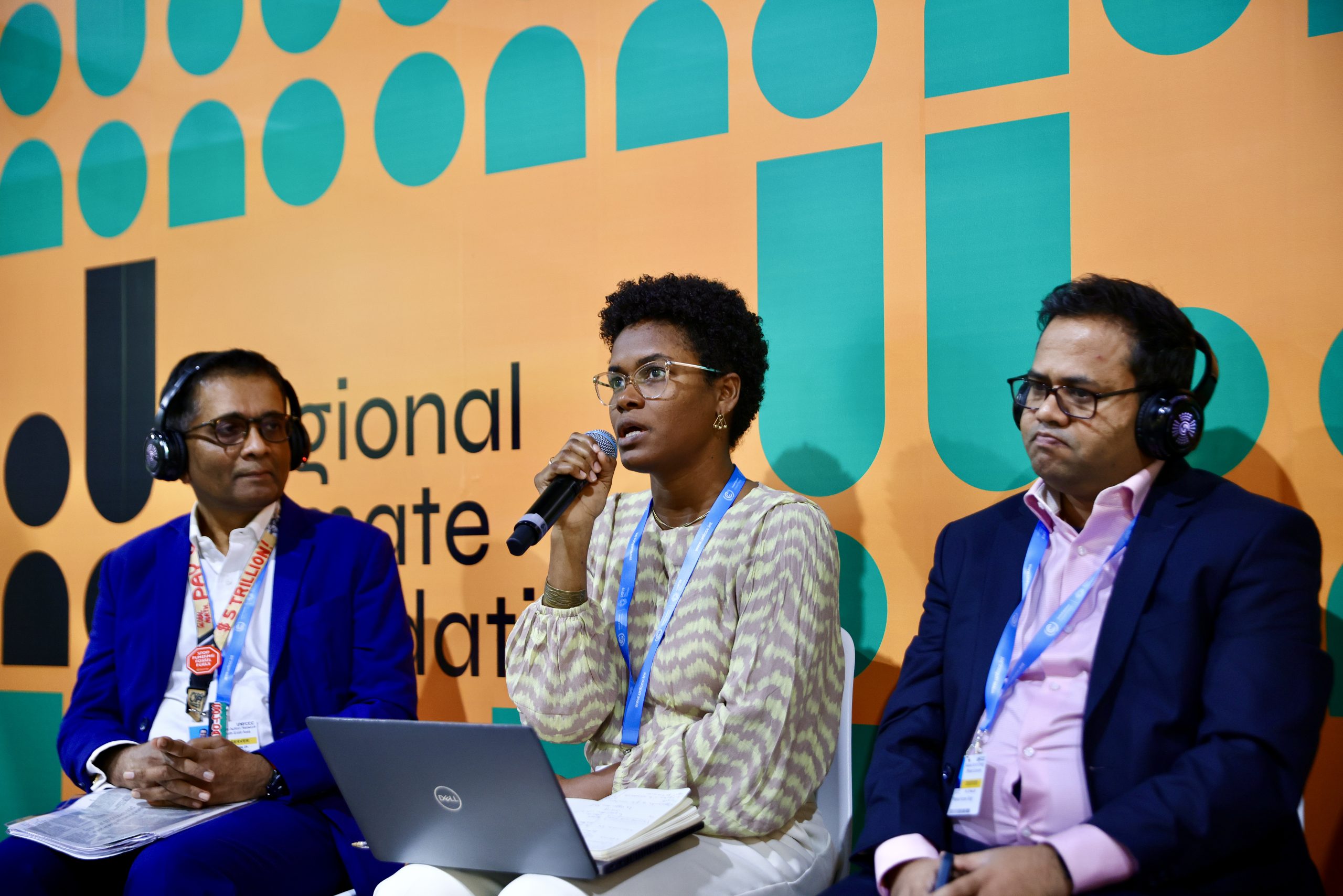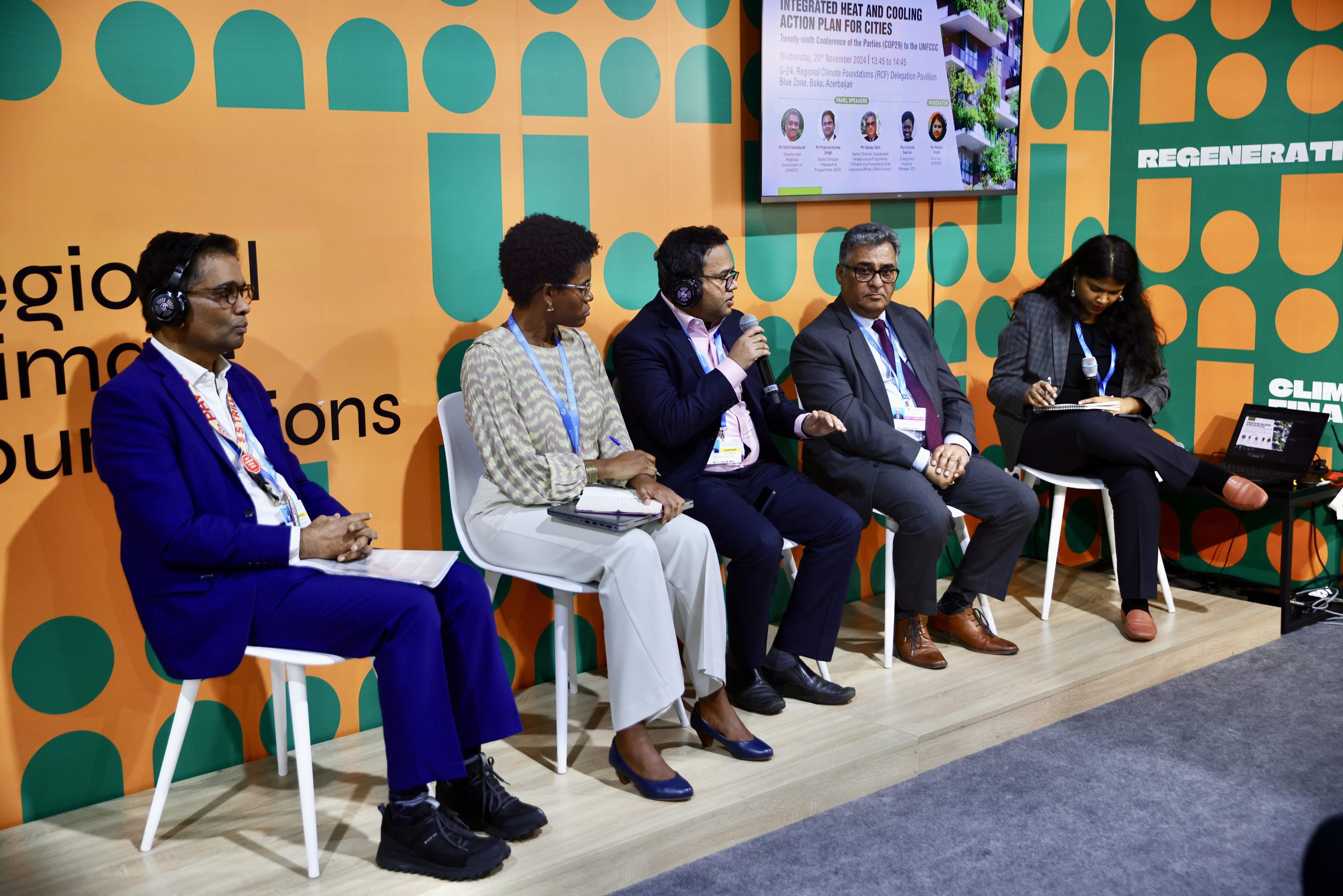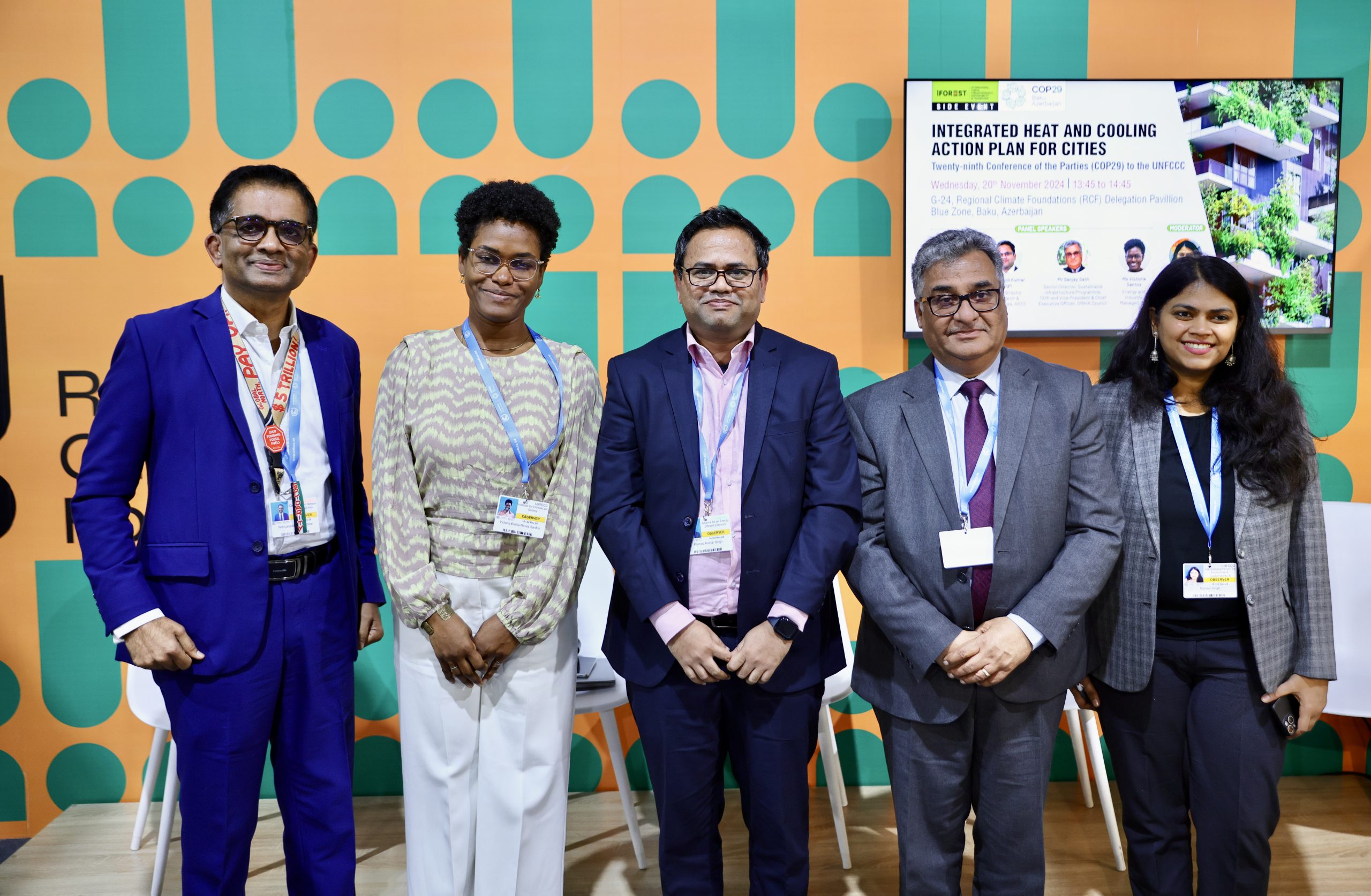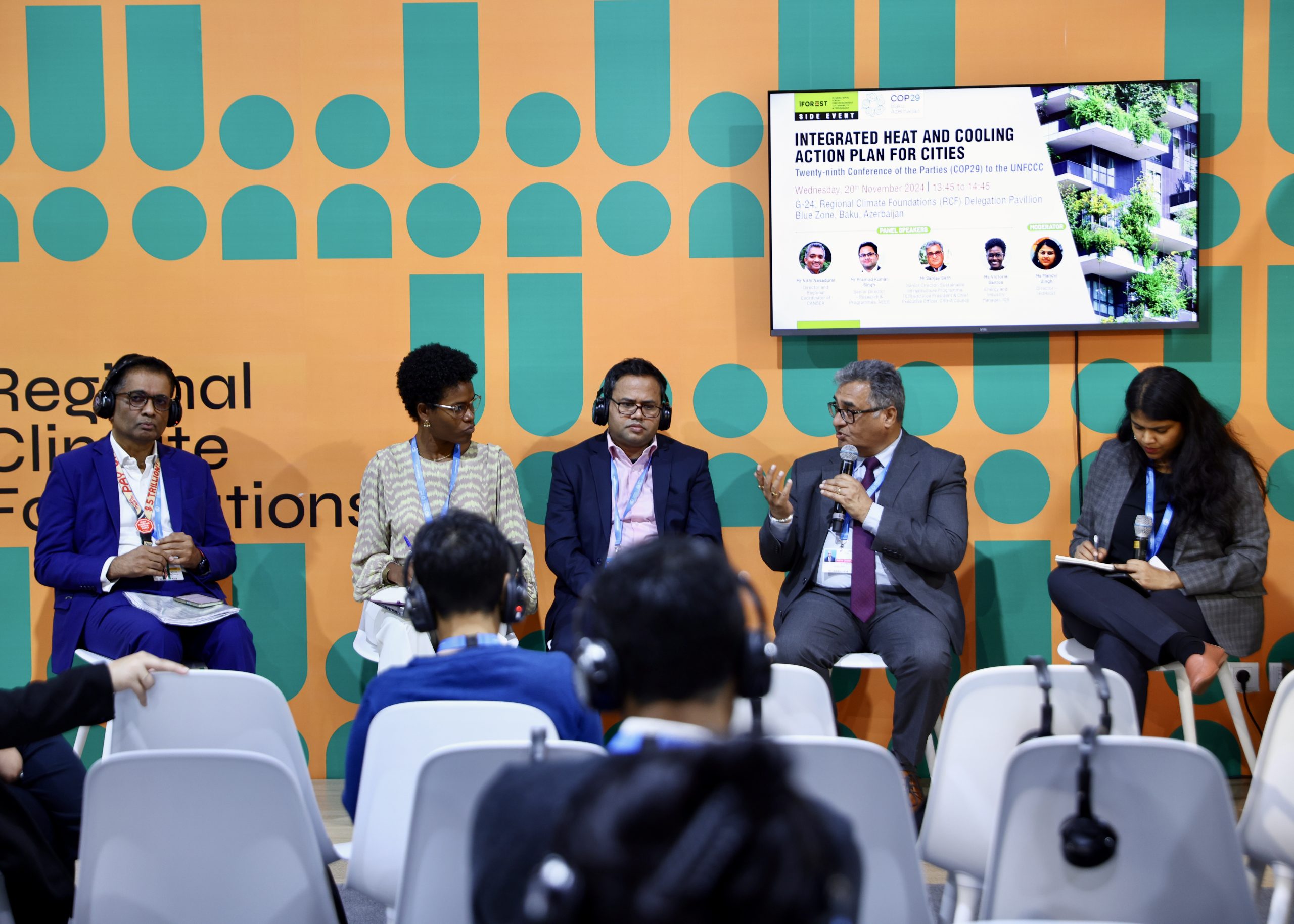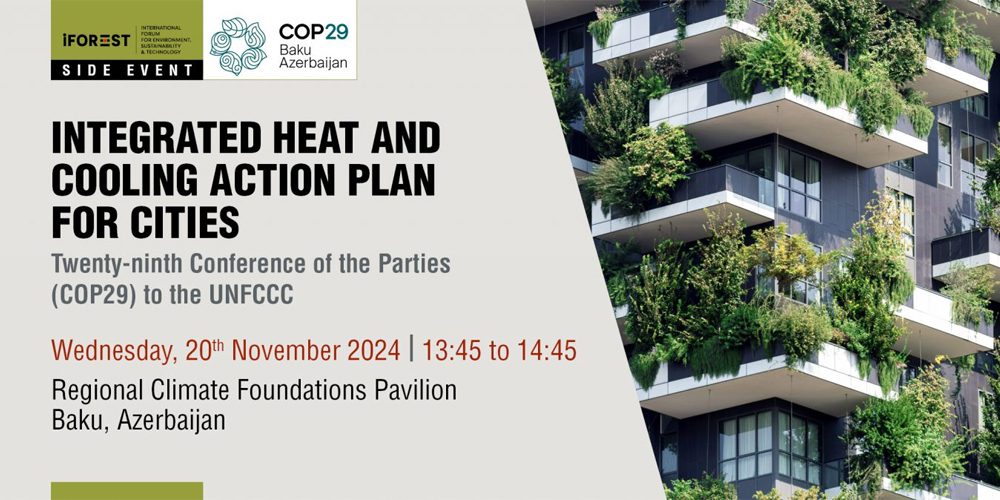
COP29 Side Event – Integrated Heat and Cooling Action Plan for Cities
With global mean temperatures steadily rising since the pre-industrial years and surging to record levels each year, heat waves have increased in intensity, occur more frequently, endure for longer periods, and impact geographical areas that were previously unaffected. This phenomenon is further exaggerated in the cities which encounter higher temperatures than surrounding rural areas due to the urban heat island effect.
With the increasing temperatures, cooling has become essential to human health, food security, and economic productivity. However, with increased demand and better access alongside the rising temperatures, higher levels of cooling are resulting in increased emissions, further exacerbating climate change and leading to even more cooling demand.
To address this dual challenge of extreme temperatures and rising cooling demand, several cities have developed Heat Action Plans to protect their citizens and the economy from severe heat impacts. Simultaneously, several countries have developed National Cooling Action Plans to focus on long-term sustainable cooling solutions.
This iFOREST side event will delve into this critical issue, analysing the existing policy initiatives in these sectors, identifying the gaps, and proposing a new comprehensive framework for addressing both heating and cooling in cities. The discussion will further focus on sharing insights and lessons from experts across different countries, identifying the evolving needs, developing strategies to overcome implementation hurdles, and discussing the necessity of a global programme to support cities.
Key Themes
– Need for an integrated heat and cooling plan for cities: developing urban resilience
– Opportunities for accelerated action through multilevel governance: current initiatives at sub-national level
– Global best practices for adaptation, resilience, and mitigation against extreme heat
– Impact of extreme heat on health and productivity
– Adoption of passive cooling strategies for a cooler future
– Importance of buildings sector in improving thermal comfort: Focus on net zero, decarbonisation, and energy efficiency
– Pathways to integrating nature based solutions into urban infrastructure design: learnings from different cities

